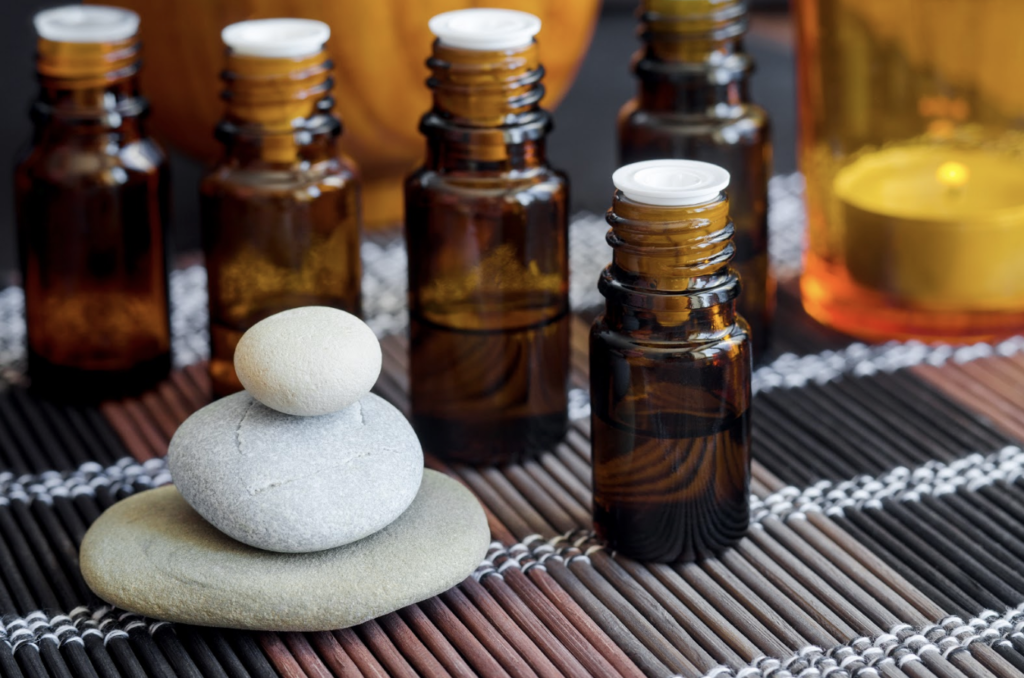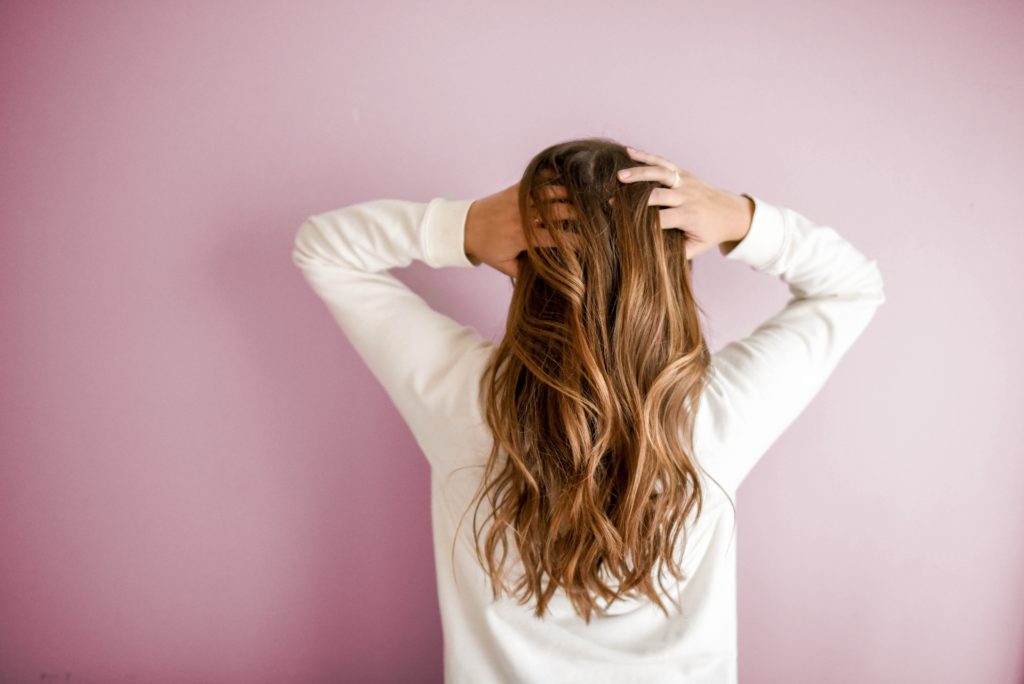Everyone’s scalp gets a little itchy at times, but when it becomes the excessive itch you just can’t help but scratch, you may have a problem. There are several causes of itchy scalp, and while it may just seem like an annoyance, this condition is an important one to take note of.
We break down itchy scalp causes and different natural scalp treatment options to get you looking and feeling your best.
What causes itchy scalp?
Scalp pruritus, or an itchy scalp, can be a symptom of several different conditions. You may be scratching your scalp because of dandruff also known as seborrheic dermatitis– causing dry scalp and flaky skin. Perhaps you got a bad sunburn at the beach, or had an allergic reaction to your shampoo or other hair products or have a head lice infestation. All of these options are plausible.
Ultimately, to stop your scalp from itching, you’re going to want to determine the cause of the itch. An itchy scalp can also be a result of fungal infections, like ringworm of the scalp or a skin condition like scalp psoriasis. Your itch could even be caused by a too tight ponytail!
With all of these possible common causes, you must check your scalp for infection and your skin for any sign of irritation. (1)
4 Best Remedies to Stop Itchy Scalp
There may be many different causes to your itchy scalp, but there are just as many natural home remedies out there to get you taken care of and put a stop to scalp itch.
1. Eliminate Harsh Chemicals from Your Beauty Routine
By now, you’ve certainly heard about the benefits of tossing your hair and skin care products out and replacing them with natural products — or even herbs. So many over-the-counter hair care brands Americans use come with a long ingredient list of harmful chemicals. These can cause cause an itchy scalp or skin irritation, potentially due to their ability to disrupt the skin microbiome.
A specific chemical that you may want to avoid in hair products are sulfates. Sodium lauryl/laureth sulfate (SLS) is a chemical found in every-day shampoos, but also in cleaning supplies like laundry detergent. Sulfate may cause potential damage to your hair and scalp by stripping your hair of its natural oils and drying it out. Try using sulfate free shampoos and conditioners to avoid this.
If you have sensitive skin, chances are your scalp often gets irritated by the hair products you use. Individuals with sensitive scalps may benefit from using products without fragrances. Fragrance sensitivities can be very serious, and have been known to cause allergic reactions and symptoms of asthma.
In addition to shampoos, conditioners, and styling products, you may want to be careful of hair dye as well. It is possible that the chemicals in hair dye may cause allergic reactions such as an inflamed and itchy scalp, and for some, chemical burns and hair loss.
To prevent these sort of reactions, be aware of what chemicals are in the brand of hair dye you intend to use, or use an organic or chemical free option. (2, 3)
2. Moisturize with Oil Treatments
There are many different oils to reduce symptoms of an itchy scalp. As far as natural home remedies go, safflower, jojoba, CBD, argan and coconut oil shine through when it comes to relieving your dandruff and itchy scalp.
Solid at room temperature and melts when warmed, these oil’s components have several amazing benefits for your skin — all backed by research.
For example, lauric acid composes almost 50% of fatty acids in coconut oil. It has shown to have potent antimicrobial properties and can fight off bacteria that lead to inflamed skin — a major part of several skin disorders like eczema, psoriasis, and contact dermatitis. (4, 5, 6)

Massaging oil into your scalp can help soften and moisturize dry skin. It can also condition hair, prevent damage, and unclog hair follicles. There are many at-home recipes for oil masks that can be applied to the scalp and the hair shaft to help kill off bacteria and infection, as well as fight dandruff.
3. Reduce Skin Issues with Tea Tree Oil
Tea tree oil, or melaleuca oil, is derived from the leaves of Australian tea tree. This oil is known for its antibiotic and antifungal properties. It has been used successfully to treat skin conditions like dandruff, acne, and psoriasis, and it can treat your itchy skin as well. Tea tree not only treats dandruff by moisturizing and soothing the scalp, but it can combat lice naturally. (7, 8, 9)
To apply tea tree oil to your scalp, mix and dilute the oil with a carrier oil like safflower, jojoba or coconut oil. The oil may be too harsh on skin if not diluted. If your scalp is consistently sensitive, speak with your doctor or dermatologist before using this oil.
Other natural products that may help to treat an itchy scalp are lemongrass and peppermint essential oils, coconut oil, coal tar, apple cider vinegar, and even CBD oil. Scalp masks can be made from honey, avocado, and other safe natural ingredients.
4. Aim for the Right Amount of Clean
Cleanliness is another key factor in preventing an itchy scalp. If you suffer from dandruff and brush your hair often, you may be brushing dandruff flakes right back into your hair. This is why it’s important to clean your hairbrush and combs regularly. Simply remove hair from the brush after each use.
A more thorough cleaning may mean using baking soda and soap to scrub your brush, followed by soaking the bristles in water, then letting the brush dry overnight. This process can help to prevent bacteria from forming.
As a rule of thumb, replace your hair brushes and combs every 6 months to a year, and never share them with others, to prevent spreading lice or other conditions.

Surprisingly, minimizing how often you shampoo may also prevent an itchy scalp. Overwashing of hair can be harmful to sensitive skin. Depending on your hair type, it may be appropriate to only wash once a week, but you should be careful of buildup forming on the scalp.
When styling hair, try not to brush hair too aggressively to avoid scratching the skin. Too much heat from styling tools like blow dryers and curling irons can also dry out the scalp.
If you suffer from itchy scalp due to excessive dandruff, there are natural anti-dandruff shampoos and products — like salicylic acid — on the market that can help with relief. Try one of these before switching to a medicated shampoo.
In Summary
- Itchy scalps are commonly caused by lice, dandruff/ seborrheic dermatitis, and reactions to chemicals.
- A great first step to better scalp care is to find alternatives to the chemical you use in your home.
- Safflower, jojoba, tea tree, coconut, and CBD are great topical oils to treat a variety of scalp conditions.
- Go the extra mile when cleaning and replacing your hair care tools, and try washing your hair less often to fight against the itch.
Sources:
- Saif, G. A., Ericson, M. E., & Yosipovitch, G. (2011, November 17). The itchy scalp – scratching for an explanation. Full Text: https://www.ncbi.nlm.nih.gov/pmc/articles/PMC3233984/
- Maguina, P., Shah-Khan, M., An, G., & Hanumadass, M. (2007). Chemical scalp burns after hair highlights. Journal of burn care & research, 28(2), 361-363. Abstract: https://www.ncbi.nlm.nih.gov/pubmed/17351461
- Chan, H. P., & Maibach, H. I. (2010). Hair highlights and severe acute irritant dermatitis (“burn”) of the scalp. Cutaneous and ocular toxicology, 29(4), 229-233. Abstract: https://www.ncbi.nlm.nih.gov/pubmed/20854194
- Kabara, J. J., Swieczkowski, D. M., Conley, A. J., & Truant, J. P. (1972). Fatty acids and derivatives as antimicrobial agents. Antimicrobial agents and chemotherapy, 2(1), 23-28. Abstract: https://www.ncbi.nlm.nih.gov/pmc/articles/PMC444260/
- Yang, D., Pornpattananangkul, D., Nakatsuji, T., Chan, M., Carson, D., Huang, C. M., & Zhang, L. (2009). The antimicrobial activity of liposomal lauric acids against Propionibacterium acnes. Biomaterials, 30(30), 6035-6040. Abstract: https://www.ncbi.nlm.nih.gov/pubmed/19665786
- Albanesi, C., & Pastore, S. (2010). Pathobiology of chronic inflammatory skin diseases: interplay between keratinocytes and immune cells as a target for anti-inflammatory drugs. Current Drug Metabolism, 11(3), 210-227. Abstract: https://www.ncbi.nlm.nih.gov/pubmed/20406192
- Satchell, A. C., Saurajen, A., Bell, C., & Barnetson, R. S. (2002). Treatment of dandruff with 5% tea tree oil shampoo. Journal of the American Academy of Dermatology, 47(6), 852-855. Abstract: https://www.ncbi.nlm.nih.gov/pubmed/12451368
- Di Campli, E., Di Bartolomeo, S., Pizzi, P. D., Di Giulio, M., Grande, R., Nostro, A., & Cellini, L. (2012). Activity of tea tree oil and nerolidol alone or in combination against Pediculus capitis (head lice) and its eggs. Parasitology research, 111(5), 1985-1992. Full Text: https://www.ncbi.nlm.nih.gov/pmc/articles/PMC3480584/
- Carson, C. F., Hammer, K. A., & Riley, T. V. (2006). Melaleuca alternifolia (tea tree) oil: a review of antimicrobial and other medicinal properties. Clinical microbiology reviews, 19(1), 50-62. Full Text: https://www.ncbi.nlm.nih.gov/pmc/articles/PMC1360273/
